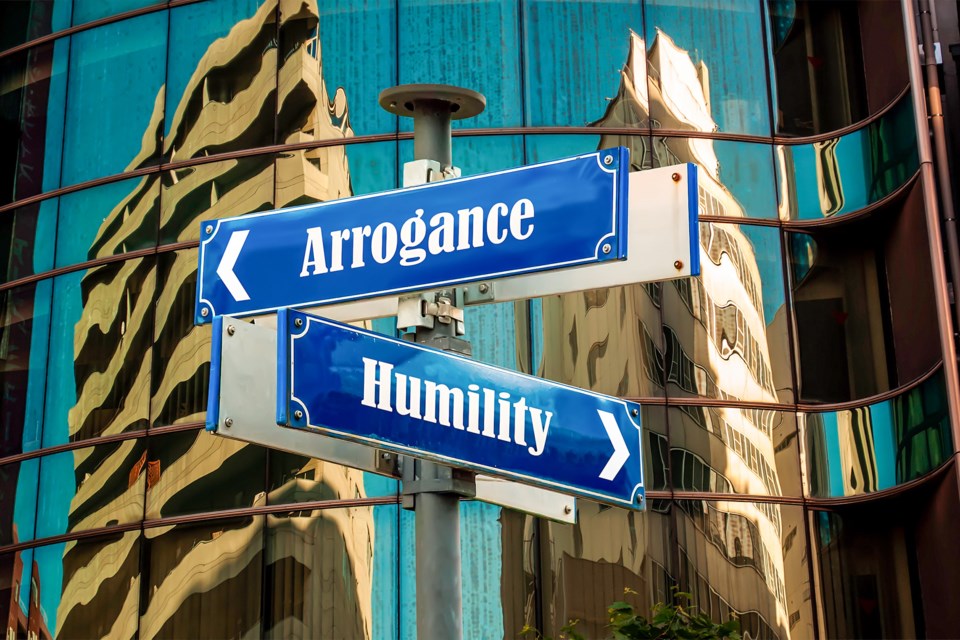There’s a marvelous story explaining the definition of chutzpah, the wonderful Yiddish word that loosely means impudence or gall. A woman gets on a crowded bus, looks around, and then says to a man already seated, “If you had what I had you’d let me take your seat.” “Of course,” says the man, assuming the lady is ill, “please sit down.”
There’s a pause, and then the polite fellow asks what the woman has. “Chutzpah” she replies, “I’ve got Chutzpah.”
If you had what I had. Joking aside, if I could flood the world with one specific quality it would be empathy, the ability to feel what others have and don’t have, to feel for them and with them, to understand.
I’m a priest, and what three years of ministry have shown me time and time again is the degree of pain and suffering out there, and how complex and nuanced people and issues really are. Anybody, cleric or not, who pronounces on profound moral issues in absolutes and certainties has clearly never got their hands dirty.
As well as a priest I’m the father of four children, and someone who has quite a lot of life experience. In other words, I’m a realist. That means that I don’t believe that leaps of empathy will automatically stop wars, end poverty, and have us all hugging in the streets. But I do think—know in fact—that if we can see the world through the eyes of others it changes us, changes them, changes everything.
It’s one thing to see the plight of another and have sympathy, it’s another thing to walk alongside that person and try to share the struggle. On issues of literal life and death, for example, such as abortion and assisted dying I would, a decade ago, declare with unqualified and undented confidence—perhaps arrogance is more accurate— from a conservative standpoint. Spend some time with those living every day terrified that tomorrow could be the time they drown, alone and in terror, in their own bodily fluid; or with pregnant teens or single women who can hardly cover the rent, and then dare to speak in roaring definites.
Even in war this makes a difference. My Odessa-born great-uncle spent four years on the front lines of World War II in the Red Army, and many members of his Jewish family were murdered by the Nazis. One can only imagine what he saw and how he felt. In Berlin, victory assured, his men brought him a young German prisoner. My uncle understood German because, like the lady in the story, he spoke Yiddish, and he knew this man was a Nazi. But had him set free. I was a child when I heard the story and asked him why he’d done it. “I’d seen enough,” he said, “I’d seen enough.”
But what he was actually saying, I later realized, was that he’d seen through the world through the eyes of others. In spite of his own suffering, in spite of what this German and his fellow travelers in darkness may have done, it was time to inject humanity into the least humane of contexts.
Most of us, thank God, will never face such a decision but if we analyze out daily lives we’re often confronted with all sorts of choices. How do we react to hostility or disappointment, do we listen to opposing points of view, do we hold back from a dismissive comment, do we connect or reject?
Just moments on Twitter will reveal what is often a total lack of empathy. What can be, and sometimes is, a warm and inviting venue for informed disagreement or learning and maturing, is frequently a bloodbath of objectification and abuse. I’ve been a victim of this, and while I can take it, I do wonder about the people who spew such venom. Good Lord, it often comes from right-wing Christians, who are supposed to follow a man who demanded pristine and endless empathy.
So, my wish for this broken, hurting, unwinding world is that we join in the communal dance, throw ourselves into mutual understanding, and develop a new vision that can see deeply into the hearts and lives of others.
Imagine for a moment if physical pain could be felt by an onlooker. It would transform the world. And the world certainly needs transforming right now. We simply can’t continue in the same old way, and if we’re to survive we have to change. Empathy? It’s well worth a try.

